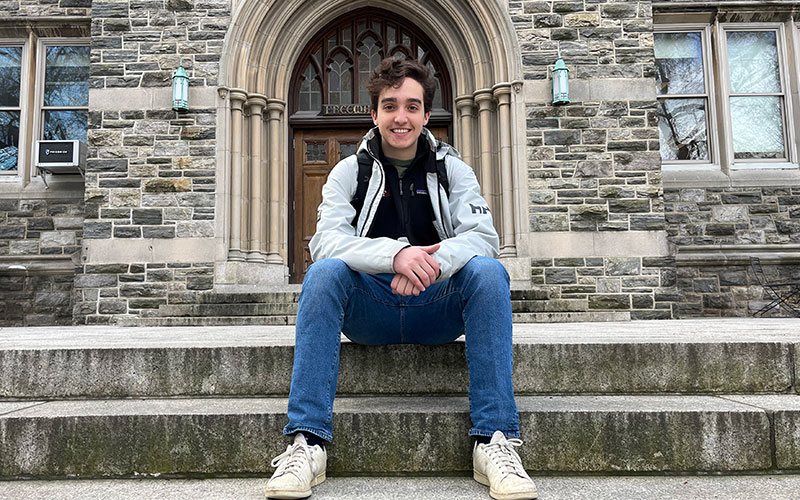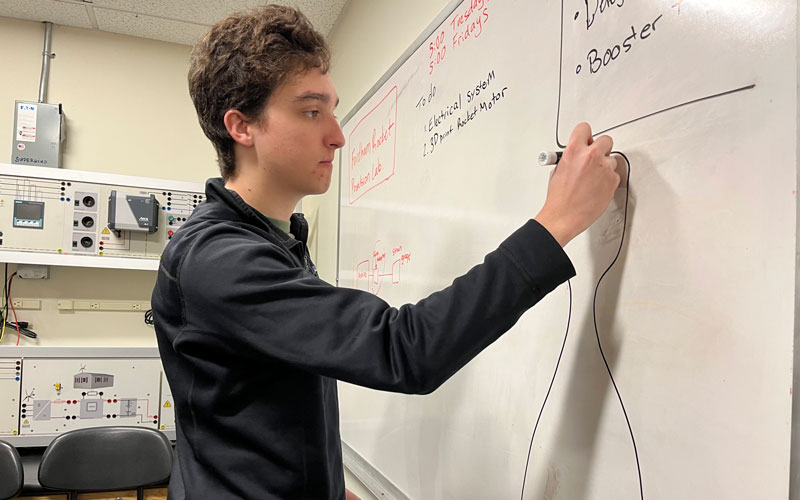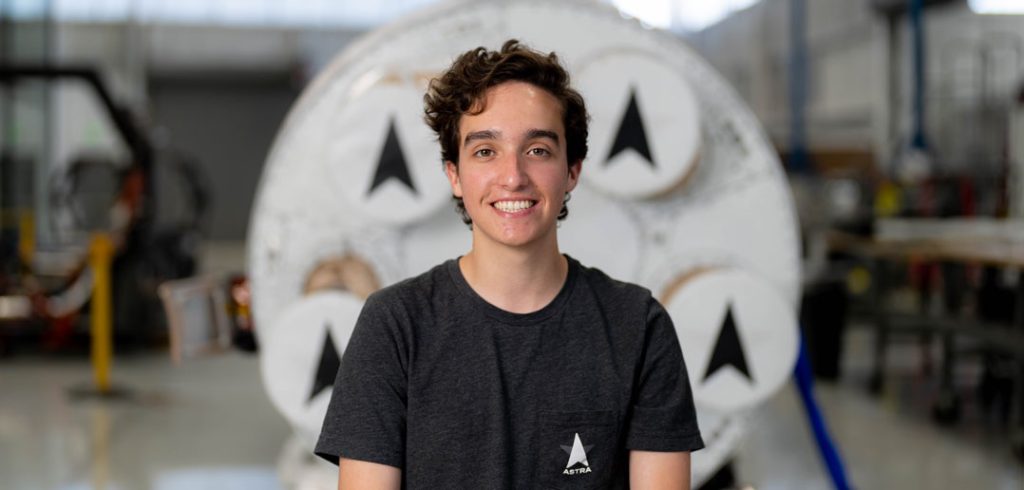Freelance Engineering
Adipietro, a native of Westport, Connecticut, loved working on cars growing up with family and friends, which initially made him want to pursue a career in automotive engineering. But he wasn’t sure how to get started, particularly as a college student with no experience. One day he had an idea while scrolling through a Facebook group for car enthusiasts.
“I sent a message saying, ‘I’m an engineering major, and I’m looking to do some design work. Does anyone have any parts they would like to be designed in CAD [computer aided design]?’” he said.
Adipietro said he thought no one would respond, but soon after he posted, “there were 30 people DM-ing me with dimensions and different projects that they needed to be completed.”
The experience he gained as a “freelance automotive engineer” helped him put concrete work experience on his resume, which he brought to a Fordham Career Fair. That’s where he connected with Standard Motor Products.
“They liked what I was doing with the freelance engineering, and I ended up being a mechanical engineering intern there for one summer,” he said.

Pivoting to Space
But Adipietro said that while he liked automotive engineering, he left looking for a more fast-paced industry working with leading edge technology to solve problems.
“I spoke to Professor [Martin] Sanzari, and he told me he had a similar experience. He suggested that I look into the aerospace industry,” Adipietro said. So he did, and soon sent out more than 100 applications.
“I was getting kind of burnt out from sending those applications out, so I ended up just starting to send cold emails—which is a pretty humbling experience—but it’s definitely a good way to reach out to people directly,” he said.
He heard back from one recipient, Psionic, an aerospace and defense company, which sent him a test project on a Friday: Design, model, 3D print, and ship a component part to their office by Monday that they needed for a meeting with the U.S. special forces.
With a lot of hustling, he managed to complete the challenge and get it all done and shipped. That helped land him a job there for about a year, where he said he “fell in love with startups” and got “really, really interested in rockets.”

Launching His Career and Others
This newfound interest inspired Adipietro to create the Fordham Rocket Propulsion Lab, a club that allows students to learn more about rockets and aerospace. He also leveraged his work at Psionic to land his next internship—a mechanical engineering position at Astra, an aerospace company. And he got some advice along the way from Bernadette Haig, a 2018 Fordham College at Rose Hill graduate who is a mechanical engineer there.
“She was incredibly helpful in terms of figuring out what that [career] timeline looks like and realizing that, even if there’s not an aerospace program at Fordham, there’s definitely a route to get to aerospace, and there’s definitely a route to get to other industries,” he said.
After his internship at Astra, Adipietro was certain that aerospace is where he wanted to work. In fact, right after it, he and a few of his friends launched Ensemble Propulsion Systems, a passion project where they “design, build, and test hybrid and liquid rocket motors.” And he also began applying to jobs for after college, including one at SpaceX, a spacecraft engineering company.
At SpaceX, the intense hiring process includes multiple rounds of interviews and, if the candidate advances, culminates with a presentation to a team of engineers followed by individual rounds of questioning from each of them.
“Every single person from the team interviews you for 30 minutes and by the end of that, it was like the whole room is filled up with equations, but it’s all equations that I learned here at Fordham,” he said.
Adipietro said his internship experiences, paired with the technical and communications skills he learned at Fordham provided him with a solid foundation.
“Going to Fordham was so helpful, and I cannot stress it enough,” he said. He cited an example of when, as part of an interview process, he had to submit a piece of writing describing the project he was working on.
“When we were in the interview, after [the interviewer] read it, he said, ‘Oh, you’re great at writing, and you really don’t see that,’” Adipietro said. “Having a very well-rounded education is definitely helpful for going out there in the industry.”
He also encouraged other students to find what they’re passionate about because that will help them be successful.
“Say there’s one person who wants to get a job for the money, then there is one person who is thinking about the industry from the second they open their eyes in the morning. The latter will have a higher chance of getting the job and being successful in industry,” he said, adding. “Pursue your passion.”

